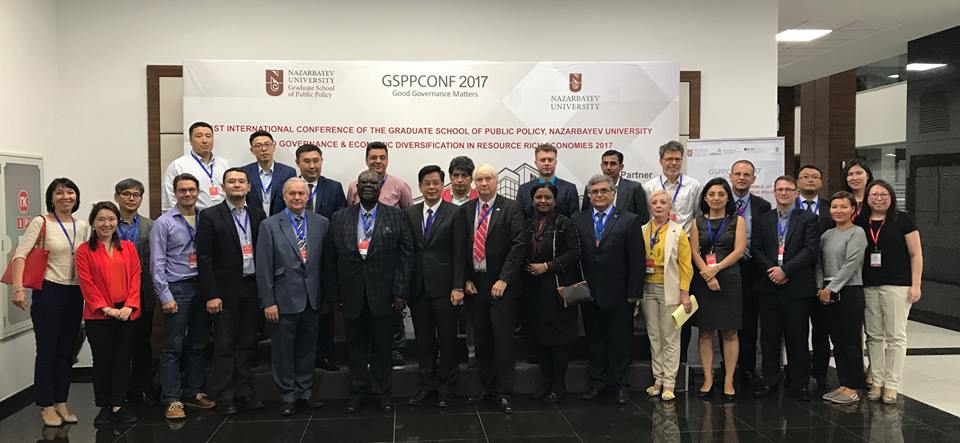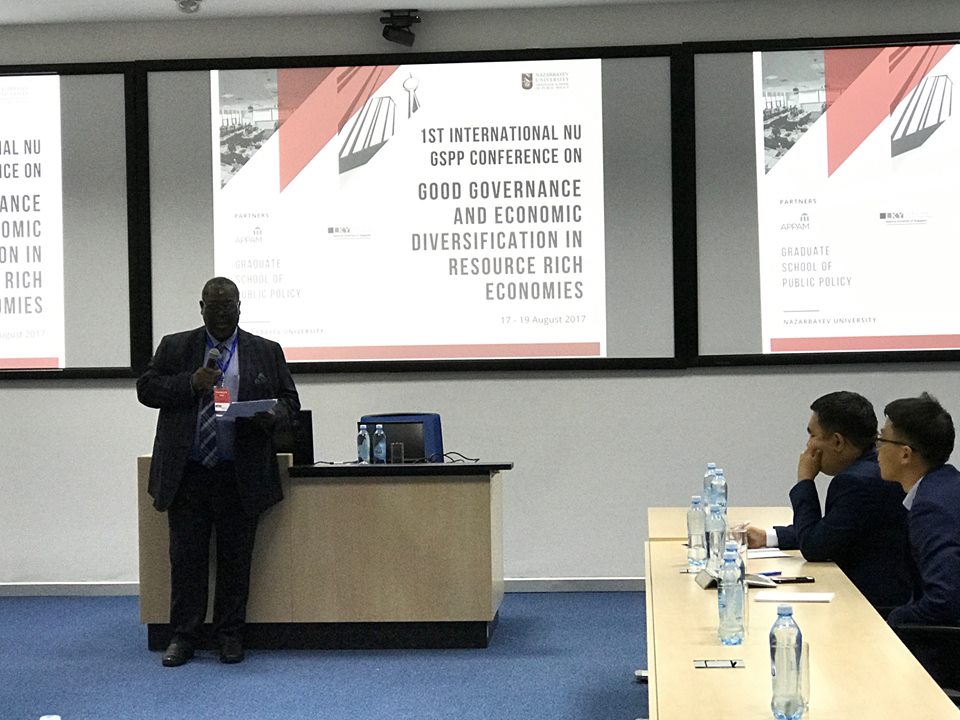ASTANA – Nazarbayev University hosted the Good Governance and Economic Diversification in Resource-Rich Economies conference Aug. 17-19, bringing approximately 40 participants and eminent academics and speakers to the Kazakh capital.
The Graduate School of Public Policy (GSPP), one of the eight schools of the nation’s young, but progressive Western-style university, organised the conference for the first time to bring the focus to the most salient issues for Central Asia and beyond.
The speakers represented various universities and institutions, such as the University of Toronto, Tashkent Financial Institution, Asia Research Centre, University of Groningen, University of Central Asia, Free University of Brussels, Norwegian Institute of International Affairs, Lee Kuan Yew School of Public Policy and Nazarbayev University.
The conference speakers and participants discussed economic diversification, public management, the political economy of natural resources, civil society and public sphere, security and international relations and public policy education in Central Asia.
“For Kazakhstan, which is heavily dependent on oil and gas, the ideas and issues discussed in this conference on Good Governance and Economic Diversification are therefore very pertinent and vital for its future economic development and progress amidst the increasingly complex, volatile and uncertain global economic and political environment,” GSPP Dean Dr. Weng Tat Hui told The Astana Times.
Good governance in natural resources management is a key factor to economic diversification, he added.
University of Warwick Professor Franklyn Lisk, who is currently involved with the Centre for the Study of Globalisation and Regionalisation, delivered the keynote speech. In his opening remarks, he noted Kazakhstan’s progress in preventing its economy from falling victim to the “resource curse,” a phrase used to describe the inability of recourse-rich economies to use their ample resources in a proper way to ensure sustained economic growth.
“On the basis of my examination of the situation in Kazakhstan, I am content to note that this country in the course of its development path since independence in 1991 has so far not tumbled into the resource curse trap,” said Lisk.
He went on to point out three components of national regulatory framework necessary for effective good governance. The environment should be such that it attracts private sector investors and international development partners to invest in the country, and the government and people should be able to witness the benefits of the use of natural resources through taxation and royalties.
Lisk noted the system through which the government reinvests its vast revenues should also be transparent to foster economic diversification and human and physical development.
“On the basis of each of these three conditions, available evidence of performance and outcome suggests that Kazakhstan’s achievements as a resource-rich economy are notable,” he said.
The country’s leadership wisely uses the resources and reinvests them, with Nazarbayev University serving as a successful example, he added. Apart from its rich resources, Kazakhstan occupies a special position in the Central Asian region and a unique geographical location between Asia and Europe.
While the conference was taking place, GSPP was already planning to organise it again next year.
“This is our modest inaugural conference. Nevertheless, we have been able to attract good quality research papers on work done in Kazakhstan and the region,” said Hui.
“We are encouraged by the response and it is our goal to continue hosting this conference on an annual or biennial basis and grow the research network that we have established,” he added.



